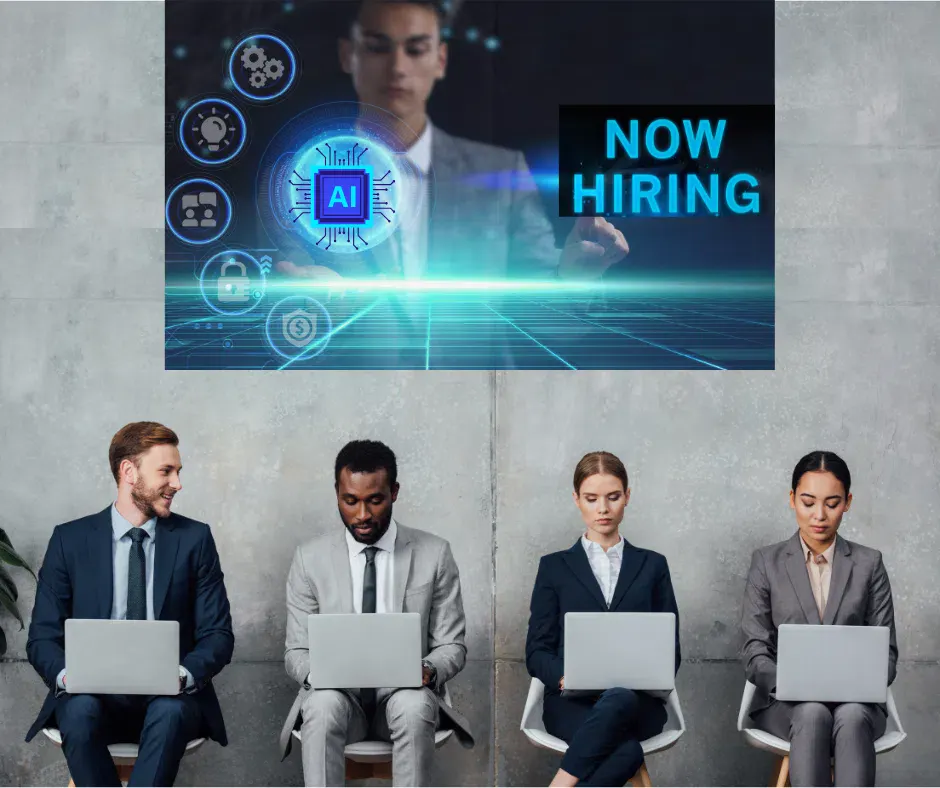Artificial intelligence (AI) is no longer a futuristic concept—it’s here, and it’s reshaping the way businesses operate, especially in hiring and workplace management. From screening resumes to monitoring employee productivity, AI tools are increasingly influencing decisions that affect people’s livelihoods. But what does this mean for workers, and what protections do they have? Can AI be trusted?
How Employers Are Using AI
Companies are using AI for a range of employment-related tasks:
- Resume screening and candidate ranking: AI systems can analyze thousands of applications quickly, filtering based on keywords, qualifications, or predicted performance.
- Video interview analysis: Some employers use software that analyzes facial expressions, tone of voice, and word choice during video interviews to assess traits like confidence or emotional intelligence.
- Productivity tracking: AI-driven tools may monitor email activity, keystrokes, or time spent on certain apps to evaluate employee performance.
- Scheduling and task assignments: AI helps schedule shifts based on predicted demand and employee availability.
While these tools can improve efficiency and reduce human bias, they also raise significant concerns about trust, fairness, transparency, and discrimination.
Risks and Legal Concerns
AI systems are only as fair as the data and algorithms behind them. When poorly designed or implemented without oversight, these tools can lead to:
- Discrimination: If an AI system is trained on biased historical data (for example, data that favors male candidates), it may replicate and even worsen that bias.
- Lack of transparency: Many AI tools operate as “black boxes,” making it difficult for workers to understand how decisions are made—or to challenge them.
- Privacy violations: Constant AI monitoring can infringe on employees’ rights to privacy and create a culture of surveillance.
In fact, multiple lawsuits and investigations have already highlighted how AI tools can unintentionally discriminate against protected groups under laws such as Title VII of the Civil Rights Act and the Americans with Disabilities Act.
What the Law Says
Federal regulators are taking notice. The Equal Employment Opportunity Commission (EEOC) and the Department of Justice have issued guidance warning employers that the use of AI must still comply with anti-discrimination laws. This includes:
- Ensuring that AI tools do not have a disparate impact on people based on race, sex, age, or disability.
- Making reasonable accommodations for applicants and employees with disabilities, even in an automated process.
- Informing applicants when AI tools are used and offering alternative options where appropriate.
Some states are also enacting their own laws. For example, New York City Local Law 144 requires employers to conduct bias audits and provide notice when AI is used in hiring decisions.
What Job Seekers and Employees Can Do
If you believe an AI-based decision negatively affected you—whether in hiring, promotion, or evaluation—you have the right to:
- Request an explanation of the process used.
- Ask for accommodations if you have a disability.
- File a complaint with the EEOC or your local human rights commission.
You may also want to consult with an employment attorney who understands the intersection of technology and labor rights. Legal professionals can help determine whether your rights were violated and what remedies might be available.
Final Thoughts
AI can make hiring and workplace decisions more efficient, but it must be used responsibly. Employers should not rely on algorithms as a substitute for human judgment—and workers shouldn’t be left at the mercy of potentially biased systems.
As technology continues to evolve, so must our legal safeguards and awareness. If you feel you’ve been treated unfairly by an AI system at work, don’t stay silent—speak with someone who can help.
Need Help Now?
Contact Joseph & Norinsberg today. We are committed to helping you fight for the fair treatment you deserve. Understanding your rights and the proper steps to take is the first step toward a solution.
Contact us online or call 212-227-5700 today for a free consultation.

